Rosemount 214c Rtd PT100 Temperature Sensor Thermocouple
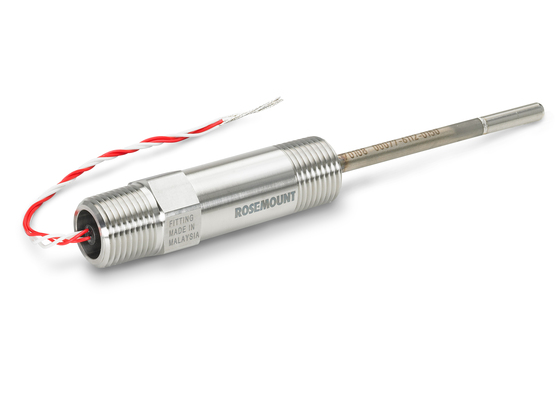
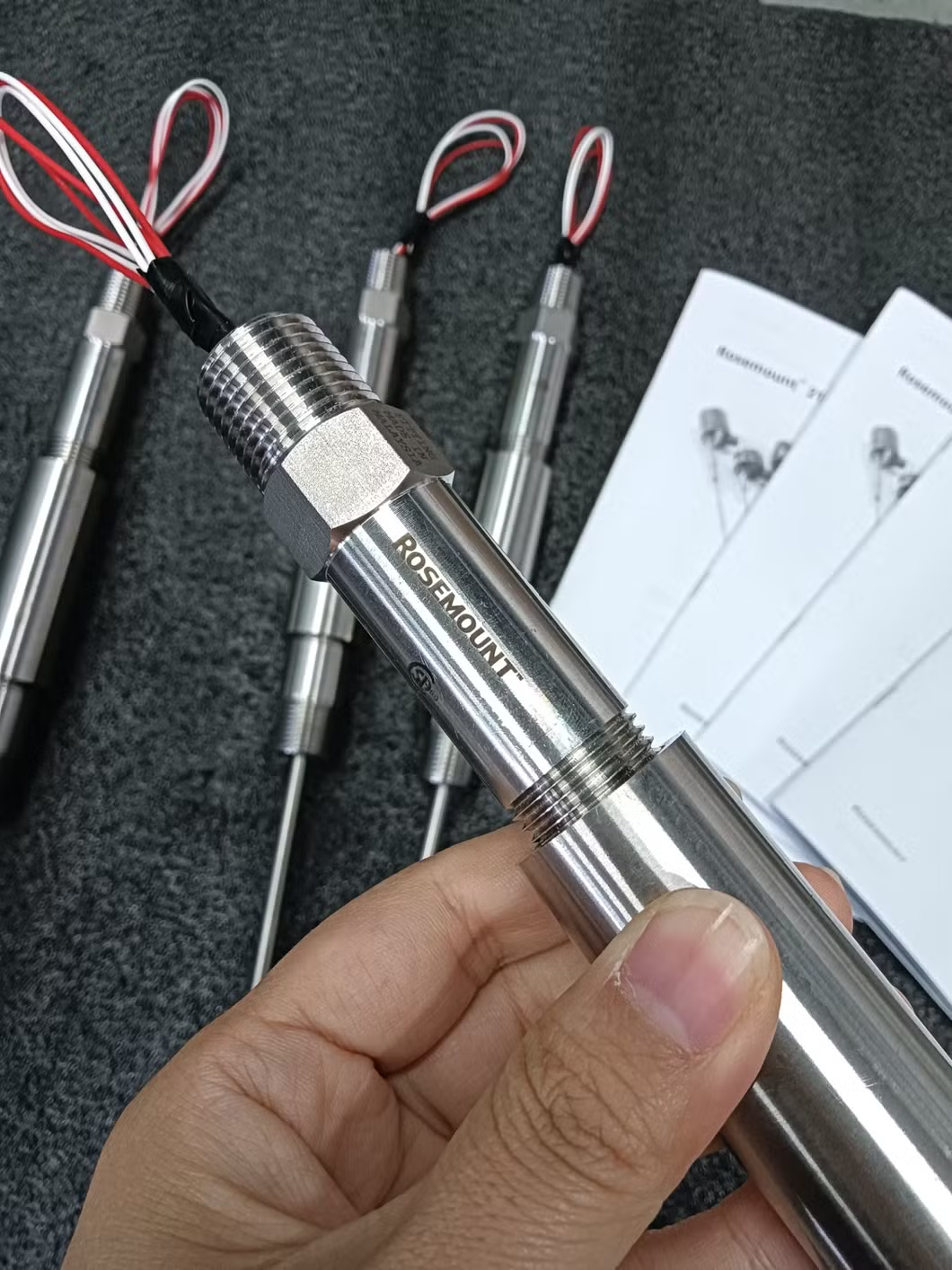
Rosemount™ 214C RTD Temperature Sensor
The Rosemount 214C RTD Temperature Sensor is a Pt-100, single or dual element resistant temperature detector (RTD) that covers a wide range of temperatures, from -321 to 1112°F (-196 to 600°C). An exceptional solution, this sensor has a thin-film and wire-wound design for application flexibility. With many calibration options, including Class A or B sensor accuracy, this sensor also offers Callendar-Van Dusen constants for transmitter-sensor matching to provide the highest level of accuracy.For wire-wound element, 0.05 °C (0.020 ) maximum ice-point resistance shift after 1g vibration between 20 and 500 Hz for 150 hours according to IEC 60751:2008
Lead Wires
24 AWG wire, FEP insulated; color coded per IEC 60751
Time Constant / Response
10.8 seconds maximum required to reach 50% sensor response when tested in flowing water according to IEC 60751:2008
Stability
±0.15 °C (0.059 ) maximum ice-point resistance shift following 1,000 hours at maximum specified temperature when measured per methods defined in IEC 60751:2008
Insulation Resistance
1000 MΩ minimum insulation resistance when measured at 500 VDC at room temperature
Calibration Options
IEC 751 Class A or B; Single point calibration; Calibration schedule or customer-specified calibration range, both with Callendar-Van Dusen constants
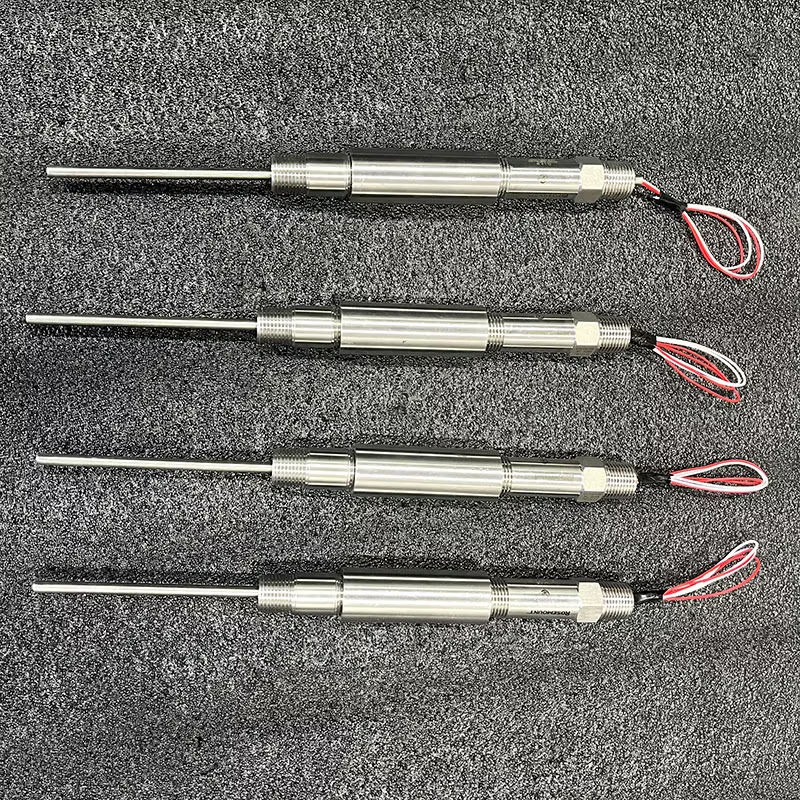
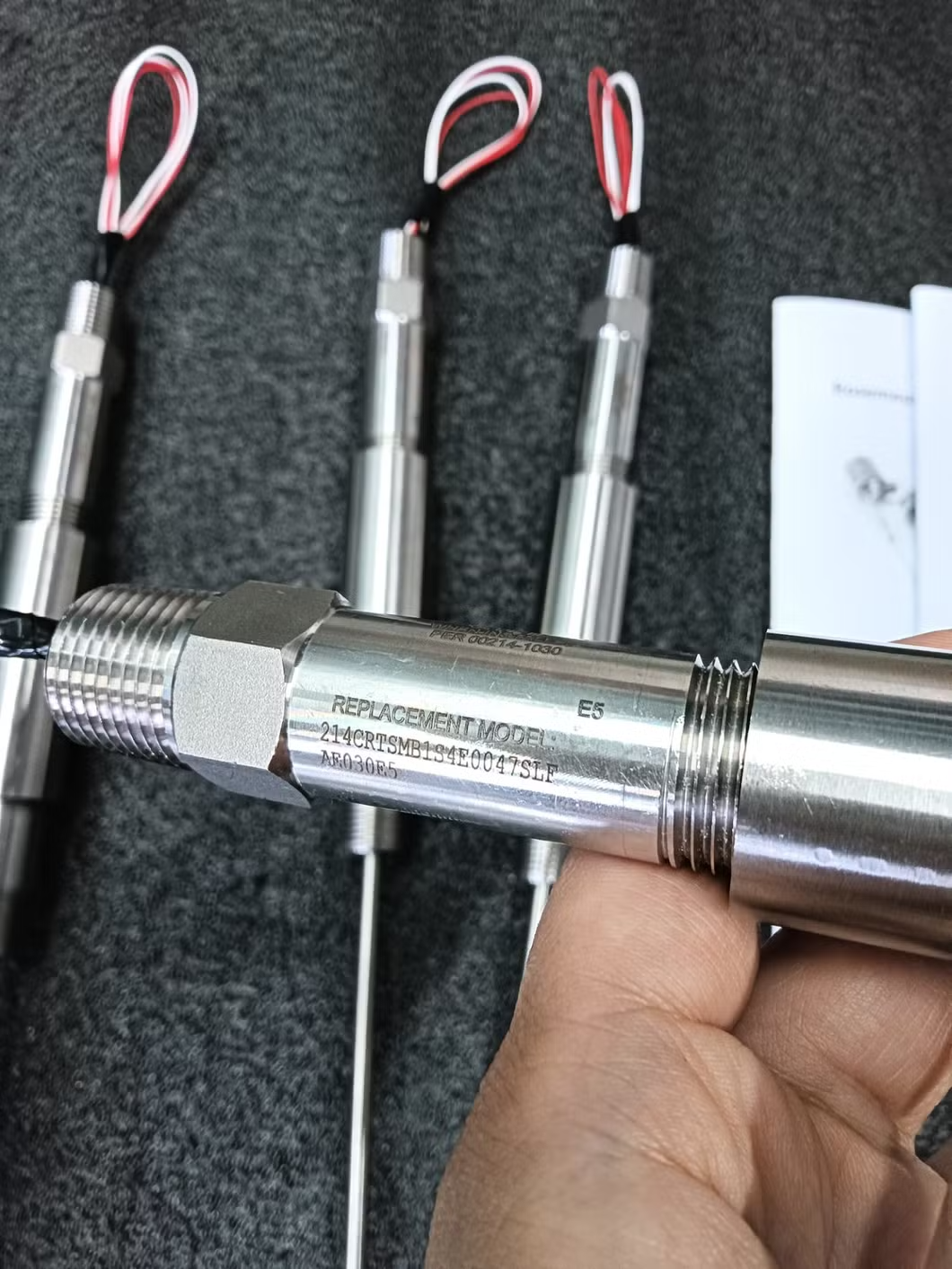
- Single or dual element Pt-100 RTD with thin-film or wire-wound designs meets various application requirements
- Thin film sensor engineered to withstand high vibration industrial applications
- Wire-wound design for applications requiring high accuracy, dual-elements and/or are subjected to high temperatures
- Covers a wide range of temperatures from -321 to 1112°F (-196 to 600°C) for application flexibility
- Callendar-Van Dusen constants allow for transmitter-sensor matching and offer the highest level of accuracy
- Optional Class A accuracy ensures critical temperature measurement points meet tolerance and accuracy standards
- Adaptable design with a variety of enclosure and connection head options meet varying application demands
- Includes spring-loaded or compact spring-loaded mounting styles for adaptability
- North American approvals meet hazardous location requirements
Model: 214C RTD Temperature Sensor
- Estimated Lead Time: 2-4 Weeks
- Shipping Weight: 3 Kg
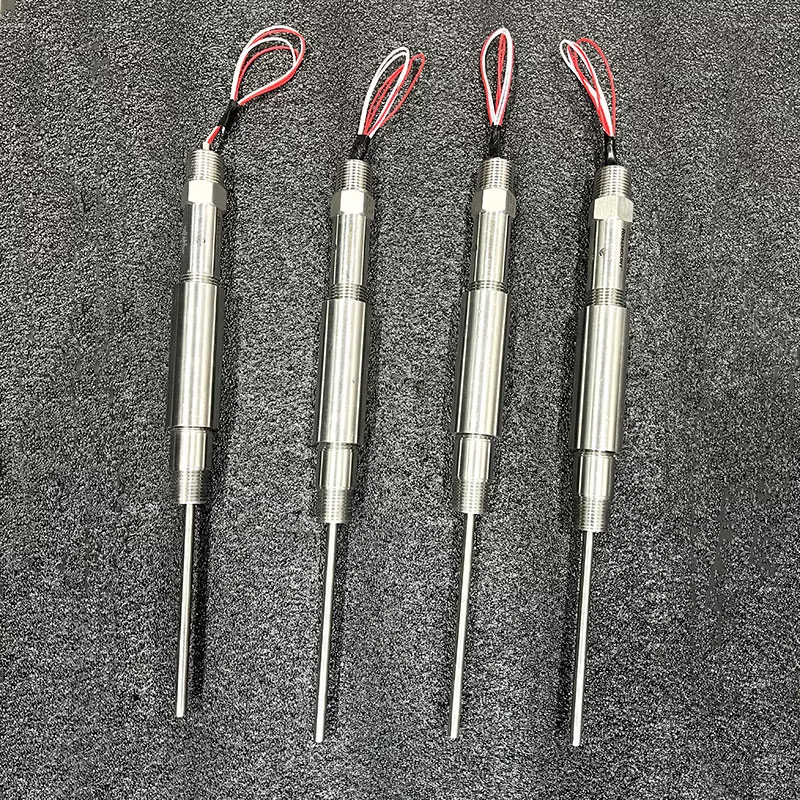
item | value |
Warranty | 1 Year |
Customized support | OEM, ODM, OBM |
Place of Origin | United States |
Brand Name | EMERSON/ROSEMOUNT |
Model Number | 214C RTD |
Theory | Rosemount™ 214C RTD Temperature Sensor |
Material | Aluminum/Stainless steel |
Type | Temperature Transmitter |
Display | LCD display |
Temperature Range | For wire-wound element, 0.05 °C (0.020 ) maximum ice-point resistance shift after 1g vibration between 20 and 500 Hz for 150 hours according to IEC 60751:2008 |
Lead Wires | 24 AWG wire, FEP insulated; color coded per IEC 60751 |
Time Constant / Response | 10.8 seconds maximum required to reach 50% sensor response when tested in flowing water according to IEC 60751:2008 |
Stability | ±0.15 °C (0.059 ) maximum ice-point resistance shift following 1,000 hours at maximum specified temperature when measured per methods defined in IEC 60751:2008 |
Insulation Resistance | 1000 MΩ minimum insulation resistance when measured at 500 VDC at room temperature |
Calibration Options | IEC 751 Class A or B; Single point calibration; Calibration schedule or customer-specified calibration range, both with Callendar-Van Dusen constants |
Sensor type | |
RTD | RTDs are based on the principle that the resistance of a metal increases with increasing temperature, a phenomenon known as thermal resistivity. Therefore, the temperature measurement can be inferred by measuring the resistance of the RTD element. |
Thin-film RTD (RT, RH) | Thin-film elements typically perform better with vibration and physical shock. These elements have a platinum construction (PT100) with a temperature coefficient of a = 0.00385 and are rated from -76 to 1112 °F (-60 to 600 °C). |
Wire-wound RTD (RW) | Wire-wound elements are a better choice when RTDs require a lower temperature range The RW option code is for wire-wound RTDs from -321 to 1112 °F (-196 to 600 °C). The element has a platinum construction (PT100) with an alpha value of a = 0.00385 Because of its lower temperature range, this option should be selected for low-temperature applications (below -76 °F [-60 °C]) This option should be selected for low-temperature applications (below -76 °F [-60 °C]) due to its low temperature range. |
Thermocouple | A thermocouple (T/C) is a closed-circuit thermoelectric temperature sensing device that consists of different metal wires connected at each end. When the temperature of one end or junction is different from the temperature of the other end, an electric current is generated. There is a trade-off between measurement resolution and temperature range, which makes individual T/C types suitable for specific ranges and applications. |


